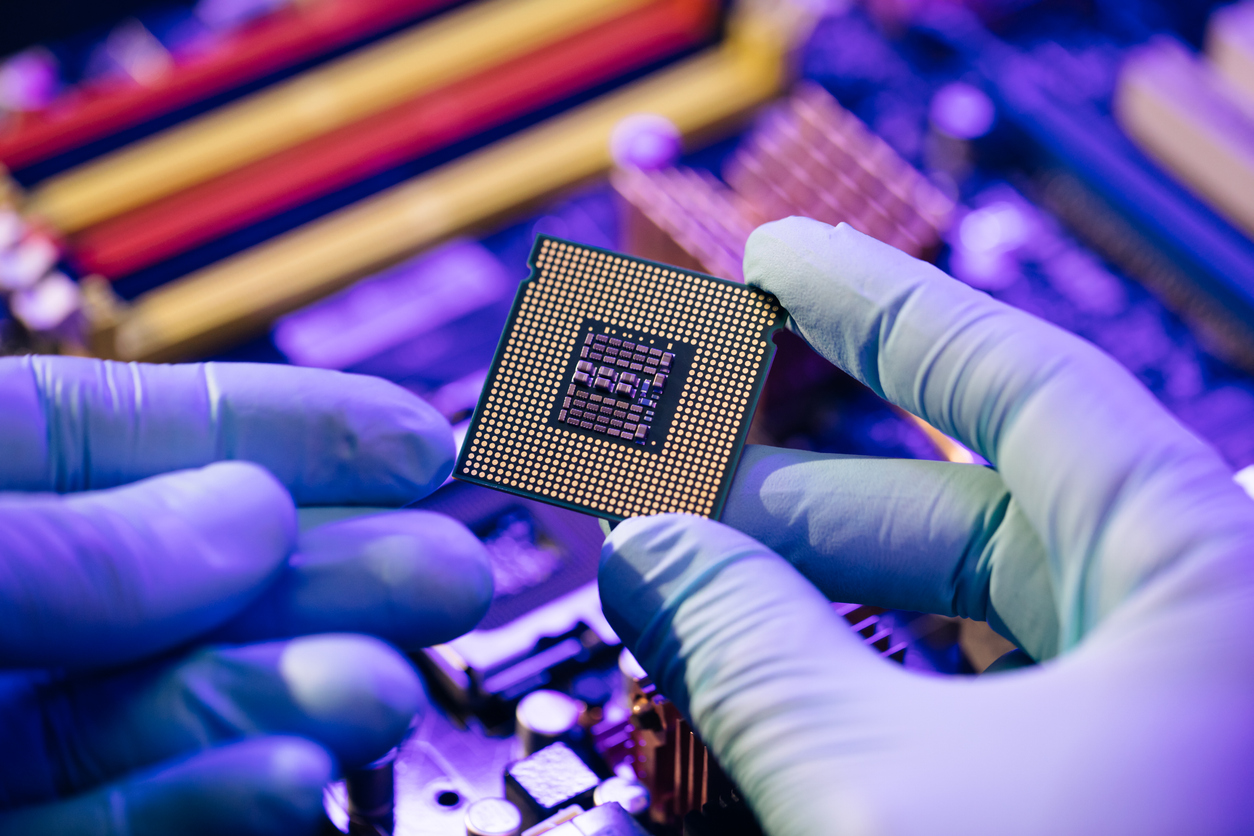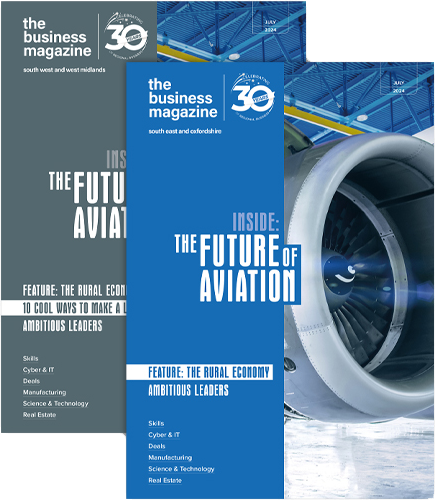UK semiconductor firms at risk from global trade war, say Sussex researchers

Just days after Lord Patrick Vallance announced an £11 million fund to grow the UK’s semiconductor industry, a new study has identified the geopolitical risks threatening to derail it.
Dubbed the “world’s most important technology”, semiconductor chips power all electrical devices from smartphones to military systems.
Researchers from the University of Sussex and King’s College London have today published a study mapping the UK’s stake in this multibillion-dollar sector and found serious frailties.
The new analysis of supply chains and foreign investment reveals a complex reliance on both China and America, leaving UK firms vulnerable to the ongoing trade war between the two superpowers.
Dr Steven Rolf, senior research fellow at University of Sussex Business School, said: “We found more than a quarter of shares in the UK’s semiconductor firms are held by US investors.
“Add this to a huge reliance on US suppliers and a persistent, if uncoordinated, pattern of Chinese investments, and there’s trouble brewing.
“We may enjoy a special relationship with the US, but overreliance on any one country makes for a risky industrial strategy.
“As the presidential election gets closer, neither candidate is backing down from the tech war with China.
“We may end up stuck in the middle, with UK firms exposed to high geopolitical risk.”
The researchers found US investors hold an average 27.5 per cent share in the UK’s 61 major semiconductors firms.
This is the largest share among foreign investors and even bigger than the 21.9 per cent held by UK investors.
Suppliers are also weighted to the US, with 48 per cent of facilities supplying the UK’s semiconductor industry being physically located in the US, while 51 per cent of customers are domiciled there.
While the US is a close ally, the researchers say this dependence poses risks to supply chain resilience, especially given the prevailing anti-globalisation agenda across the pond.
Meanwhile, recent Chinese investment in UK firms has sparked controversy, such as the acquisition of Newport Wafer Fab by a Dutch subsidiary of China’s Wingtech Technology.
But the new research finds Chinese influence to be even more pervasive, if not necessarily any more coordinated, than previously known.
Between 2014 and 2024, Chinese firms made up 7 per cent of all greenfield investments in the UK chip sector, and Chinese investors hold equity in 36 of the UK’s 61 major semiconductor firms.
Researchers say this leaves UK firms vulnerable to US moves to freeze China out of global supply chains.
The previous UK government published a National Semiconductor Strategy to grow the sector in 2023, but today’s report criticises a lack of data behind this policy, saying it’s based on “generic market analyses”.
The new administration has started to address this, with a fresh sector analysis published by the Department for Science, Innovation and Technology last week.
This maps the industry’s regional structure and gives some insight into UK firms’ international operations, but doesn’t consider supply chain risks outside of Taiwan, where the majority of semiconductor manufacturing occurs.
It also fails to identify geopolitical risks posed by foreign ownership and investment.
Dr Rolf added: “It’s good to see the new government recognising this vital industry, but we’re playing catch up in a global race.
“The UK is well placed to excel in profitable niche areas focused on intellectual property and industrial applications, but the industry faces potentially serious geopolitical risks which are not addressed by the current strategy.
“Much more work is needed to map supply chain and ownership structures to protect the UK’s economic security.”
The latest analysis from Sussex also reveals friction closer to home, finding Brexit-related trade barriers may see UK firms missing opportunities from EU investments.
While the UK has negotiated access to €1.3 billion in EU research and development funds, UK companies remain ineligible for direct funding or subsidies under the European Chips Act.
Researchers say this may put them at a commercial disadvantage.


















